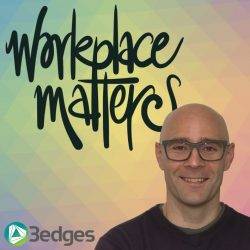July 3, 2017
One in five employees are too scared to ask for flexible working rights 0
 Over one in five (21 percent) UK private sector employees – equivalent to 5.5m nationally – are too afraid to discuss flexible working with their boss because they think they will say no, Aviva’s Working Lives report claims. The findings come despite employees having the legal right to make a ‘statutory application’ to their employer to change their working pattern . Those aged 35-49 are the most likely to refrain from exercising this right despite the challenge some in this age group may face with juggling work and family life: nearly one in four (24 percent) shy away from starting a conversation for fear of rejection.
Over one in five (21 percent) UK private sector employees – equivalent to 5.5m nationally – are too afraid to discuss flexible working with their boss because they think they will say no, Aviva’s Working Lives report claims. The findings come despite employees having the legal right to make a ‘statutory application’ to their employer to change their working pattern . Those aged 35-49 are the most likely to refrain from exercising this right despite the challenge some in this age group may face with juggling work and family life: nearly one in four (24 percent) shy away from starting a conversation for fear of rejection.























 An exodus of staff is expected at the end of June, claims a new study which predicts that 36 percent of employees will have left their jobs by the end of this month. Research from Robert Half UK entitled: ‘It’s time we all work happy: The secrets of the happiest companies and employees’ finds employees in London and the East of England are most likely to have left their roles by the end of June with nearly half of Londoners (49 percent) and 42 percent of those in cities like Cambridge, Norwich and Peterborough admitting they anticipate quitting their jobs in the first six months of the year. This trend is being driven by the millennial generation (aged 18–34), who despite experiencing above average levels of happiness (71.7) and interest (71.3) in their roles, are more likely to have left their jobs (49 percent) compared to a third of 35–54 year old’s and a fifth (21 percent) of those aged over 55.
An exodus of staff is expected at the end of June, claims a new study which predicts that 36 percent of employees will have left their jobs by the end of this month. Research from Robert Half UK entitled: ‘It’s time we all work happy: The secrets of the happiest companies and employees’ finds employees in London and the East of England are most likely to have left their roles by the end of June with nearly half of Londoners (49 percent) and 42 percent of those in cities like Cambridge, Norwich and Peterborough admitting they anticipate quitting their jobs in the first six months of the year. This trend is being driven by the millennial generation (aged 18–34), who despite experiencing above average levels of happiness (71.7) and interest (71.3) in their roles, are more likely to have left their jobs (49 percent) compared to a third of 35–54 year old’s and a fifth (21 percent) of those aged over 55. 
 An increasing number of workers are taking on caring responsibilities, be this for children, elderly relatives or other dependents, and it’s becoming a major cause of workforce absence, claims new research. According to data released by group risk industry body GRiD, for 61 percent of employers these issues are a main cause of short-term absence (less than 4 weeks); for 49 percent of employers these issues are a main cause of mid-term absence (4 weeks to 6 months) and for 43 percent of employers these issues are a main cause of long-term absence (in excess of 6 months). They can also be a contributory factor in the development of mental illness or the deterioration of mental health. Indeed, mental ill-health is another major cause of absence, due to the knock-on effects of stress and deteriorating mental health that results in more absence. In terms of what employers are doing to reduce absence and improve attendance, flexible working comes out as the top-rated solution, with 36 percent of employers citing this as one of the measures they have put in place to minimise absence.
An increasing number of workers are taking on caring responsibilities, be this for children, elderly relatives or other dependents, and it’s becoming a major cause of workforce absence, claims new research. According to data released by group risk industry body GRiD, for 61 percent of employers these issues are a main cause of short-term absence (less than 4 weeks); for 49 percent of employers these issues are a main cause of mid-term absence (4 weeks to 6 months) and for 43 percent of employers these issues are a main cause of long-term absence (in excess of 6 months). They can also be a contributory factor in the development of mental illness or the deterioration of mental health. Indeed, mental ill-health is another major cause of absence, due to the knock-on effects of stress and deteriorating mental health that results in more absence. In terms of what employers are doing to reduce absence and improve attendance, flexible working comes out as the top-rated solution, with 36 percent of employers citing this as one of the measures they have put in place to minimise absence.













